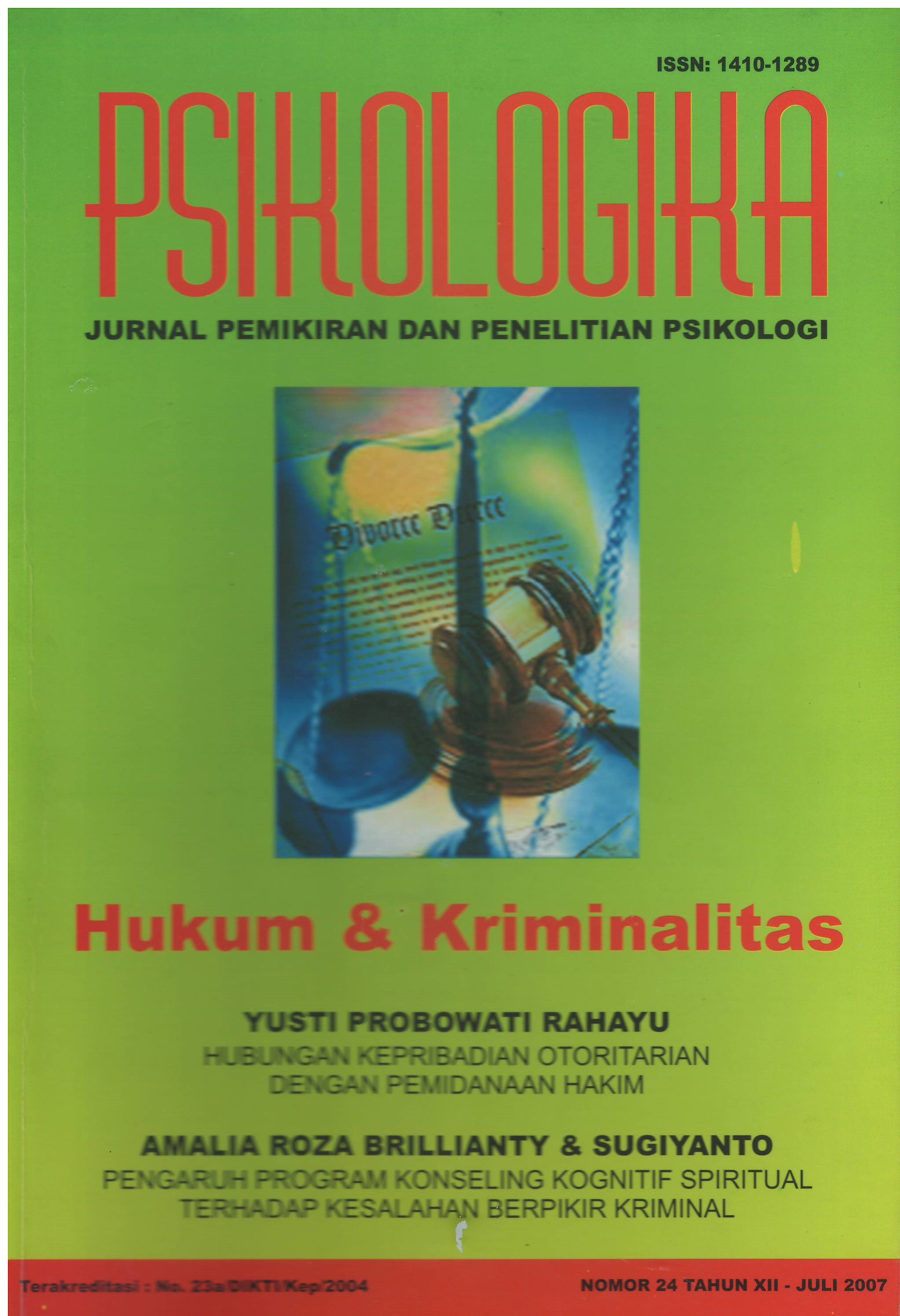Main Article Content
Abstract
Moral violation among students, from elementary school until high school, is increasing both in quantity and quality. The government has put in effort to overcome this problem through moral and ethic lessons. On the other hand, parents encounter problems in upholding the rules for children. In the other words, parents have not found an effective way to plant moral lessons (Andayani, 2000).
An effective form of communication results from the combination of father child and mother chils interaction quality, using persuasive expressions persistently, avoiding physical punishments, and expressions indicating self esteem (Elizabeth and Cardlyn, 1999; Maria, 1999).
A qualitative method was used in the case study. The research subjects consist of pre-school students until first graders of 4 to 7 years old. Student’s interaction, both with teachers at school and with parents at home, was observed with structureless observation method, and followed by interview with teachers and parents. The observation settings are as follows : 1) houses; 2) Sunday school; 3) Play group; 4) Taman Siswa Elementary School; 5) Kindergarten.
Findings : 1) Toleration, honesty, courage, and forgivingness are moral values which are more often conveyed by teachers to students at school; 2) moral values which are taught concerns more with the completion of school works; 3) not many teachers covey warnings in Javanese language; 4) warnings conducted by parents consist of a more angry characteristic and not of advice; 5) moral value taught at home concerns more with obedience toward parents, disciplinary and diligence.
Â
Key words    :   persistent persuasion